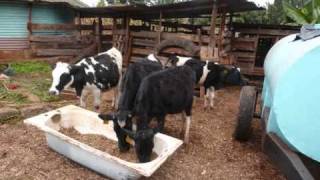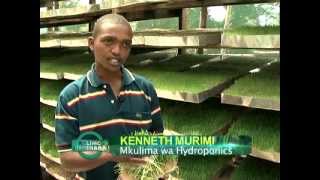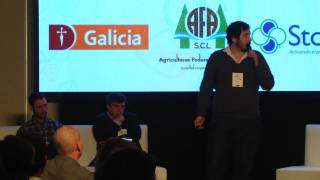Saturday, 13 December, 2025г.
















Где искать: по сайтам Запорожской области, статьи, видео ролики
пример: покупка автомобиля в Запорожье
Juhudi Kilimo - Changing The Way Farmers Do Business
This video provides an insight into the world of Juhudi Kilimo: supporting economic activity across agribusiness value chains by providing micro-asset financing to smallholder farmers throughout rural Kenya. Juhudi focuses on the predominant economic sector of rural Kenya—agriculture—by financing assets that increase sustainability, long-term productivity, and wealth creation. Juhudi works with two main segments of the agribusiness value chain: Smallholder Farmers: Rural asset financing is an innovative approach to poverty alleviation. It provides smallholder farmers with access to wealth-creating assets (such as cows or irrigation systems) that generate the income required to repay small loans. Asset financing differs from micro credit in that the loan is linked to a specific incoming-generating asset, as opposed to a general loan that could be used for consumption or emergency funding. Asset financing's cost-effective advantage over conventional loans enables Juhudi to offer its clients lower interest rates, staggered payments, and longer repayment periods that align with the client's sales performance. Rural Enterprises: Juhudi's theory of economic change is based on providing a growth path for smallholder farmers, from acquiring an initial wealth-creating asset to helping them build a larger rural enterprise. Steps on this path include not only provision of appropriate capital, but also technical assistance that helps the entrepreneur acquire the business discipline, knowledge, and skills needed to scale up and succeed. Juhudi will also address the next step in the agribusiness value chain by supporting rural enterprises such as milk chilling plants, coffee mills, and mango processing plants. By building capacity in these rural enterprises, Juhudi supports and sustains markets for the smallholder farmers. The expansion and improvements of these markets affects suppliers, who benefit from a more competitive marketplace.
Похожие видео
Мой аккаунт


 У вашего броузера проблема в совместимости с HTML5
У вашего броузера проблема в совместимости с HTML5


